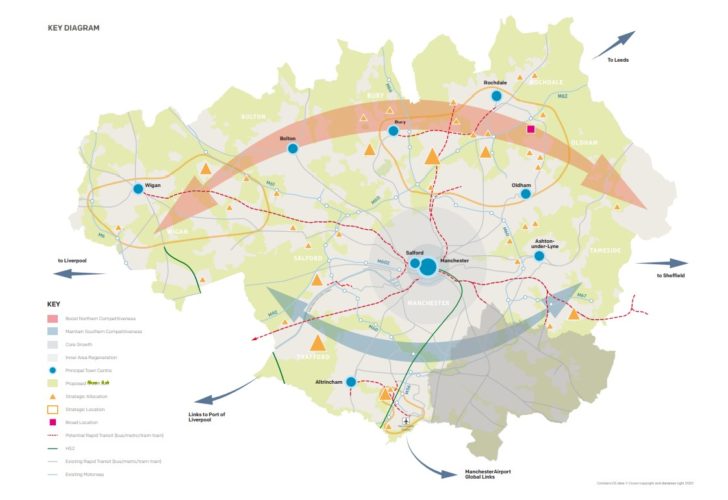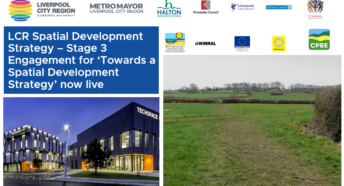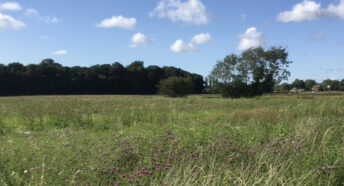Greater Manchester ‘Places for everyone’ joint development plan
CPRE will respond to the matters, issues and questions arising from inspector questions being put to Greater Manchester Combined Authority concerning the examination of the Greater Manchester ‘Places for Everyone’ Joint Development Plan.
We are aware that William Fieldhouse, Louise Gibbons and Steven Lee, are the three appointed inspectors and Yvonne Parker and Helen Wilson are the two programme officers who have been appointed.
An Examination website with all the latest information and documentation regarding the Examination is available via the link below:
https://www.hwa.uk.com/projects/gmca/
For up-to-date information, please check under EXAMINATION NEWS on the website on a regular basis.
The Inspectors have issued Guidance Notes, which include a Provisional Examination Programme; the Notes can be viewed at:
https://www.hwa.uk.com/site/wp-content/uploads/2022/03/IN1-Guidance-Notes-v218Mar.pdf
We intend to write to all respondents again, once the Inspectors’ Matters, Issues and Questions (MIQs) are published. At that stage we will be asking all respondents whether they wish to participate at any proposed hearing session(s).
CPRE Cheshire and CPRE Lancashire, Liverpool City Region and Greater Manchester will be making representations by the deadline of 27th June 2022 in accordance with earlier representations.
The hearings are expected to commence in October 2022. CPRE will attend the upcoming examination of the Greater Manchester ‘Places for Everyone’ Joint Development Plan.
If you have any questions, please do not hesitate to contact us.
Response to Greater Manchester ‘Places for Everyone’ consultation – CPRE Lancashire
The map below shows the extent of Green Belt in green shading, and the locations of strategic sites is shown in orange triangles.

In CPRE’s opinion all Green Belt loss identified in ‘Places for Everyone’ is unnecessary. If ‘realistic’ housing and job requirements were planned, no land in protected Green Belt would be lost to development.
Green Belt is very important as it keeps land permanently open for everyone to enjoy, in the right place next to large conurbations of people who enjoy health and well-being benefits associated with spending time in the outdoors next to nature.
Our team has already successfully campaigned for a reduced amount of Green Belt than was originally earmarked, down by 60% to 1,754 hectares. We commissioned an expert demographer to evidence flaws in the GMCA housing calculations.
Developers will of course fight back, with an army of expert consultants, to ensure a higher housing and jobs requirement so that their sites situated in the Green Belt are allocated into the spatial plan irrespective of harms and local opposition.
We also urged for the brownfield preference as CPRE has a policy of brownfield first to save our urban greenspaces and unbuilt land in the countryside, accepting where previously used land now plays a community amenity or biodiversity benefit, then it should be designated as such.
We are joining forces with local community groups and environmental organisations to coordinate our representations and avoid duplications, such as the respective Wildlife Trusts, Friends of the Earth, Community Planning Alliance, Friends of Carrington Moss, among others.
We continue to object to any Green Belt loss where unjustified. CPRE is particularly concerned about the Carrington site in Trafford site due to ecology harm from a new link road and scale of development proposed along with a number of other sites.
Importantly CPRE supports a Joint Development Plan being adopted to better protect the countryside and greenspaces of Greater Manchester’s nine constituent authorities. We understand that Stockport decided not to approve the submission ‘Places for Everyone’ Joint Development Plan due to politicians on behalf of their local public resisting Green Belt loss. Without an up to date adopted local plan to steer development and ensure a five year housing land supply our greenspace is most vulnerable to speculative development.
We continue to urge Government for sensible improvement to our national planning policies to protect our rural places and urban greenspaces for the benefit of all in the future. The National Planning Policy Framework was introduced in 2012 and although it has been revised, it still operates as a ‘Developers’ Charter’ making protecting and enhancing land in the countryside very difficult.








